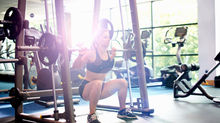Is what you eat, affecting your performance on the golf course?
- Mar 8, 2015
- 4 min read
Nutrition and diet are an important part of any sports person or athletes focus when considering performance and ways to optimise it. This also applies to the professional and elite golfers out on tour week in week out. How much emphasis however does the regular amateur golfer place on diet and nutrition, and do we consider what affect the food we consume has on our on-course performance?
The answer is, not nearly enough of us do and whilst we may make it part of our Saturday morning routine of visiting the nets or chipping green prior to our weekly competition round; we don’t consider the best way to fuel our bodies in preparation for our finest round yet! However by planning our meals and fluid consumption prior and during a round of golf, this could be just as effective as any pre-round practice.
Many may think that this kind of prep and thinking is best left to the professionals and is far too serious for the regular Saturday club amateur or Sunday society member. How much difference can a bottle of water or a scrambled egg make to my round? To the regular player it could be the difference of a par-par-par finish as opposed to a bogie-bogie-bogie finish which could see your handicap cut and your qualification through to the last 16 knockout stage.
Primarily this difference in finish could be due to attention and concentration levels as you near the end of a round. We all start off on the first tee with focus, making sure we follow our pre-shot routine and set up correctly as we practiced in our last lesson. We concentrate on the target and where we want the ball to land, and are determined to ensure that this round we will maintain these levels throughout the full 18. How often (honestly!) can we say that we maintain that same first hole focus throughout the full round? Obviously a lot of that is due to mental and psychological processes that are best learnt through a golf mind coach or sports psychologist, however a lot of that concentration loss is also down to dehydration.
Dehydration can affect our regular brain function which is key to focus, concentration and decision making which are all important within a round of golf. We also need proper hydration to maintain sufficient lubrication of our joints, without this we can experience joint pain and stiffening (think lower back and shoulders).
Research has also shown that a 1-2% loss of hydration can lead to a decline in maximal strength which could ultimately affect your driving distance.
To avoid dehydration in your round, ideally you need to consume 25% (in ounces) of your halved total bodyweight (in pounds) first thing in the morning. So if you weigh 200lbs you should consume 25 ounce of water when you wake up. You then need to consume another 50% throughout your round of golf (50 ounces if weighed 200lbs) to maintain proper hydration. This will ensure that your brain, muscles and joints are all receiving the correct level of water to their cells to ensure optimum function, which ultimately will help your overall performance.

With effective hydration taken care of, you now need to consider what foods are best to maintain your blood sugars throughout your round.
Regulated blood sugar levels are key to your golf performance and also the energy that you have available throughout your round. Like hydration you must correctly regulate your blood sugars first thing in the morning at breakfast and then maintain this throughout the day and your 18 holes of golf. It has been found that eating breakfast that is high in protein and fat everyday has a positive effect on blood sugar levels and your ability to regulate it for the rest of the day.
Contrary to popular belief a breakfast of eggs, bacon, steak, avocado or nuts is more beneficial than that of cereal or bread. This is due to the high levels of protein and fat providing better levels of energy as well as improving the efficiency of neurotransmitters, regulation of hormone secretion and providing essential amino acids to our body for effective muscle and brain function.
Cereals and breads are also processed carbohydrates that have a higher Glycaemic Index (GI) which means that they convert to sugar very quickly and are not slow in the release of energy and glucose. This effects blood sugars in that they drop as quickly as they rise, which can effect regulation of bodily functions and subsequently performance.
To maintain those blood sugars throughout your round, you should look to snack every 3-4 or 5-6 holes, the frequency does vary depending on the individual. Good examples of snacks would be nuts/seeds, chicken, beef jerky or anything else that is high in protein or low GI carbohydrates. Things to avoid on the golf course would be sports drinks, sweets, and chocolate or anything with sugar as this will cause your blood sugar levels to shoot up and become unstable which would be a detriment to performance, concentration and focus.
So with this information in mind why not give it a try this weekend when you play your next round of golf. Treat yourself to those bacon and eggs that you usually feel guilty about eating and be a little more organised and pack that extra bottle of water and a bag full of nuts to eat during your round. You’ll be amazed at the positive impact these small changes will have on your focus and performance.
For more information on golf nutrition or if you would like to discuss any other areas of golf conditioning and fitness, please contact me on rachael@dynamic-golf.co.uk.
Alternatively you can visit our website www.dynamic-golf.co.uk, and you can also find us on Twitter @dynamic_golf and facebook dynamicgolfuk.






































Comments